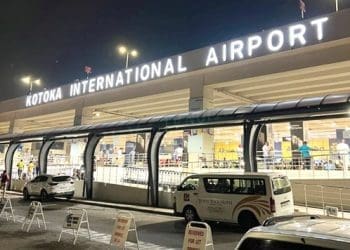The Ghana Registered Nurses and Midwives Association (GRNMA) has declared an indefinite withdrawal of its services, stating that its members will not return to work until the Ministry of Health implements the Collective Bargaining Agreement (CBA) signed in 2024.
At a National Council meeting held in Accra, the leadership of the GRNMA resolved that nurses and midwives across the country should stay home until the conditions of service outlined in the CBA are fully implemented by government.
The Association argues that the delay in implementation is unjustifiable and detrimental to the welfare of healthcare workers and the health of the nation.
Signed agreement, unfulfilled obligations
According to Mr. Philemon Gyapong, Assistant National Public Relations Officer of the Association, the conditions of service were signed more than a year ago after months of negotiations and are long overdue for enforcement.
He called on government to honour the signed agreement so that members can return to work and continue saving lives.
The CBA, concluded in May 2024, is valid for two years and was expected to usher in significant improvements in the working conditions of nurses and midwives.
However, no concrete steps have been taken by the Ministry of Health to enforce the agreement, prompting what the Association describes as a necessary show of resolve.
A demand for dignity and fair treatment
The Association’s demands under the CBA include the provision of medical insurance for nurses, midwives, and their families.
It also seeks the introduction of a thirteenth-month salary to cushion members against the high cost of living, and a rural service incentive to support those serving in remote and underserved areas of the country.
Further provisions in the agreement include risk allowances for personnel working under dangerous or high-exposure conditions, monthly financial support of GHS1,000 for each nurse and midwife trainee, and the supply of standardised uniforms and safety gear.
Additionally, the GRNMA is asking for proper compensation for extra duty and on-call assignments, and a formal commitment from the government to ensure a safe working environment across all healthcare facilities.
The Association maintains that returning to any negotiation table without first implementing the 2024 agreement would only cause unnecessary delays and undermine the progress made during the initial talks.
Nationwide service disruption begins
On June 5, the GRNMA formally notified the Ministry of Health that its members would withdraw their services in all outpatient departments across the country starting June 9.
That directive has taken full effect, with public hospitals and health centres reporting widespread disruption in outpatient care delivery.
The GRNMA has clarified that the action is not a traditional strike, but rather a responsible measure aimed at holding government accountable for commitments already made.
It insists that the current sit-at-home directive will remain in force until full implementation of the signed CBA begins.
A united front of over 120,000 members
The GRNMA represents more than 120,000 active members and brings together 15 specialised groups within the healthcare profession.
These include midwives, peri-operative nurses, mental health nurses, ophthalmic nurses, preventive health nurses, critical care nurses, and paediatric nurses, as well as physician assistants, anaesthesia professionals, ENT nurses, specialist nurses and midwives, and general nurses and enrolled nurses.
This unified front signals a major challenge to government, as the action affects nearly every branch of frontline nursing and midwifery care.
With such broad participation, the Association’s protest is expected to have significant implications for healthcare delivery across the country.
Lives in the balance as pressure mounts
As outpatient services remain suspended and public frustration mounts, the GRNMA is urging government to act swiftly to avoid a collapse in healthcare provision.
The Association insists that its members are willing to resume work, but only if the Ministry of Health honours the obligations set out in the 2024 Collective Bargaining Agreement.
“The ball is in the government’s court,” Mr. Gyapong stated. “We are ready to return to work, but only under the conditions we have rightfully secured. Anything less is a disservice to nurses, midwives, and the Ghanaian public.”














